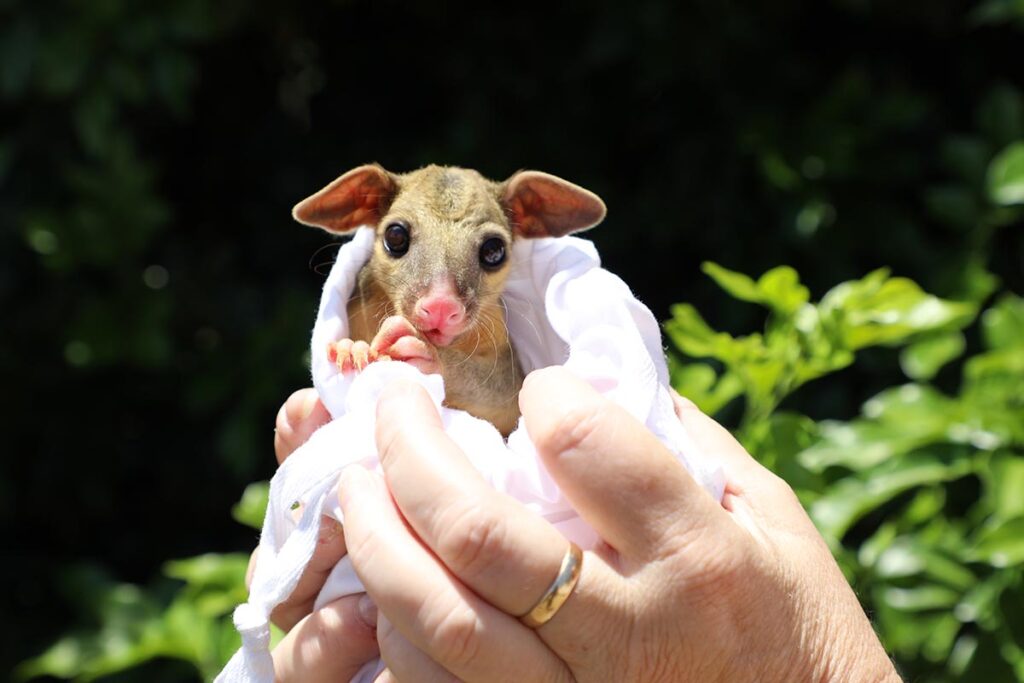
Community members who find sick, injured or orphaned native wildlife can contact local wildlife care groups for advice and assistance.
- Bundy Wildlife Rescue Inc. can be contacted 24 hours a day, 7 days a week, phone 0412 665 424.
- Qld Wildlife Carers & Volunteers Association Inc., phone 0439 502 228.
- Woodgate & Surrounds Wildlife Rescue Inc., phone 0459 241 318.
- To report a marine stranding, contact RSPCA on 1300 ANIMAL (1300 264 6525).
Consider your safety first and take care if on or near roads.
Some animals may be dangerous to approach or handle, always seek advice from a licenced wildlife carer if uncertain or uncomfortable.
Do not touch bats or pick up snakes, goannas, raptors, kangaroos or wallabies. Instead contact a trained wildlife carer to carry out the rescue.
Handle the animal as little as possible, place the animal in a secure box with air holes, and keep them warm, quiet, and dark.
Stress from injury and rescue can cause shock, a major factor in the death of injured wildlife.
Reduce shock for the animal by keeping the animal covered, confined and calm, if possible.
Do not remove young from teats, seek advice if you discover an injured or orphaned joey.
Marine strandings include sick, injured or deceased marine animals such as turtles, whales, dolphins and dugongs.
Only licenced carers can rehabilitate wildlife.
Local vets may also be able to assess sick or injured native wildlife.




